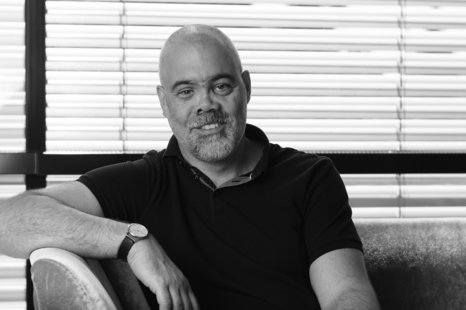Obituary: FAU professor and director of the MPL Jochen Guck has passed away
It is with great sadness that we announce the unexpected passing of Prof. Dr. Jochen Guck, Chair of Biological Optomechanics at Friedrich-Alexander University Erlangen-Nuremberg (FAU) and Director at the Max Planck Institute for the Science of Light (MPL), on October 3 after a serious illness. He headed the Department of Cell Physics at the MPL and the Max Planck Center for Physics and Medicine (MPZPM), whose development he played a key role in shaping. As a globally recognized pioneer in the field of cell mechanics, his visionary research contributed significantly to the success and international reputation of the collaborative research center and FAU.
The Department of physics and his colleagues at the MPL and MPZPM are deeply saddened by the death of Jochen Guck. With his passing, the scientific community and those who worked with him have lost not only a brilliant colleague, outstanding teacher, and good friend. Jochen Guck’s ideas shaped and inspired a new generation of scientists. His colleagues will miss him deeply and at the same time carry on his vision: to better understand the human body and combat disease by combining the forces of physics and medicine.
Our sympathy goes out to his family and all those who were close to him.
The MPL and the MPZPM have also set up a digital book of condolences.
Using physics to detect diseases
With his interdisciplinary team, Jochen Guck pursued the mission of driving a paradigm shift in biology by shifting the focus from molecular biochemistry to the observation of emergent physical phenomena at the cellular level. Using novel physical methods, he researched the specific physical properties of cells and tissues that enable them to perform their biological functions.
For example, the real-time deformability cytometry (RT-DC) he developed enables thousands of cells in a drop of blood to be recorded and evaluated within just a few seconds. His novel approach to using Brillouin microscopy deepened the fundamental understanding of cell mechanical processes in unexplored clinical pictures. An important aim of his work was to make mechanobiology usable as a diagnostic and therapeutic tool in medicine. To this end, in addition to his academic research, he successfully founded companies as a link between innovative basic research and certified applications. One example is the start-up company Rivercyte, which aims to transfer deformability cytometry technology to the clinical environment.
Life and scientific success
Jochen Guck was born in Schweinfurt, Germany in 1973. He studied physics in Würzburg and received his doctorate from the University of Texas at Austin, USA. After working as a group leader at the University of Leipzig, he moved to the Cavendish Laboratory at the University of Cambridge in the United Kingdom as a lecturer in 2007 and was appointed reader in 2009. In 2012, Guck was appointed Alexander von Humboldt Professor of Cellular Machines at the Biotechnology Center of the Technical University of Dresden, where he served as executive director. Since October 2018, he has been a director at MPL and headed a division at MPZPM in Erlangen. Since August 2020, he has held a professorship in Biological Optomechanics in the Department of Physics at Friedrich-Alexander-Universität Erlangen-Nürnberg (FAU) and, since 2024, in the Faculty of Medicine of FAU.
Jochen Guck has been honored with some of the most prestigious scientific awards in recognition of his outstanding contributions at the interface of physics, biology, and medicine. In 2024, he received the Greve Prize from the Leopoldina, one of Germany’s highest honors for excellent basic research. The award was given for his groundbreaking research on the role of mechanical forces in cells and tissues. Previously, he received the Wilhelm Ostwald Medal from the Saxon Academy of Sciences in recognition of his fundamental work on the physics of living matter and the establishment of mechanobiology as an independent field of research. In 2008, the U.S. National Academy of Sciences honored him with the Cozzarelli Award for his pioneering work on the examination of the optical properties of the retina.
